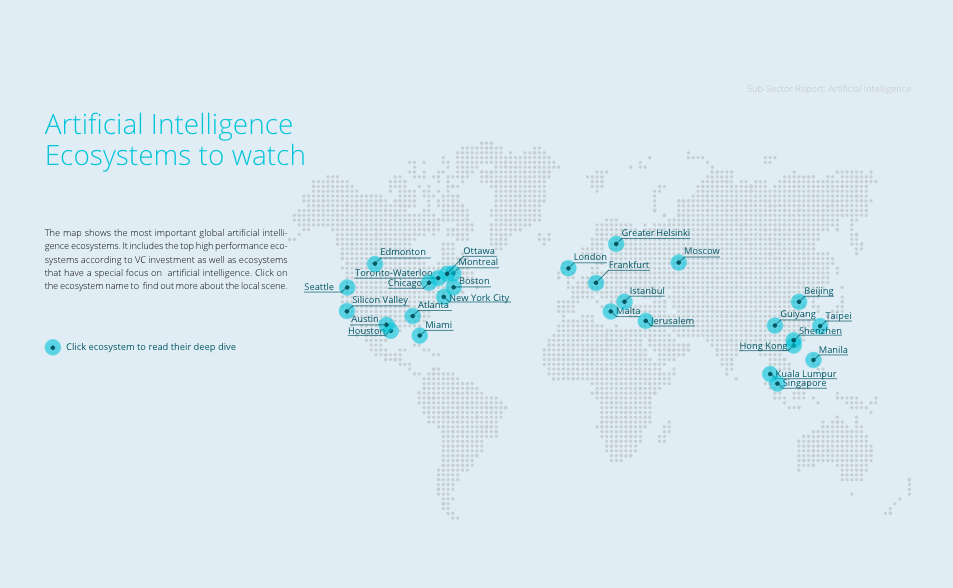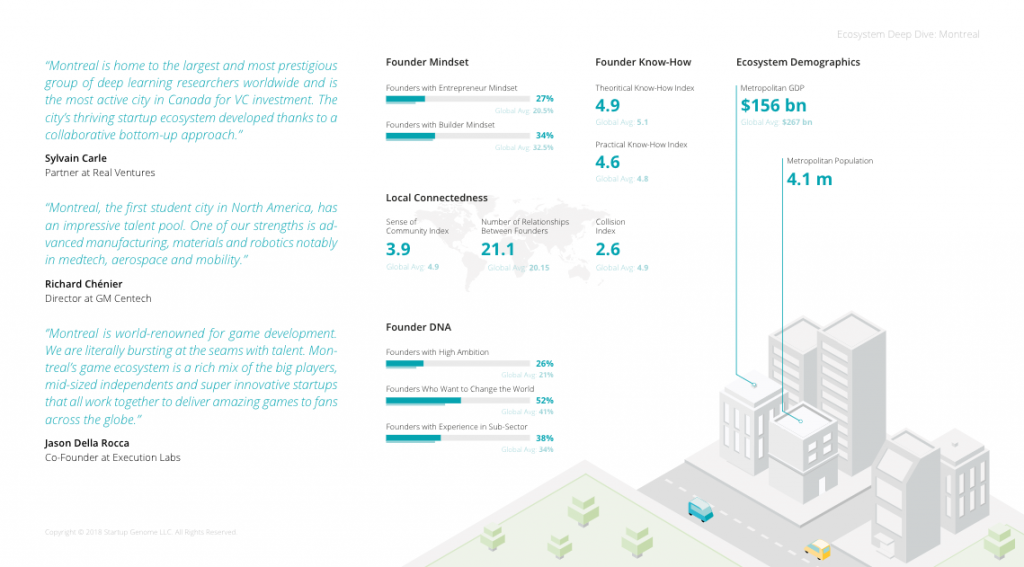Startup Genome has released its report detailing the state of innovation across the world for 2018.
The report dives deep into tracking ecosystems and emerging industries, and includes key learnings from one million companies, nearly 100 ecosystems, and the world’s largest primary research with tech founders: the Voice of Entrepreneurs.
“We’ve entered the third wave of innovation — the global startup community is disrupting industries by combining technology with deep industry expertise,” said JF Gauthier, CEO and co-founder of Startup Genome. “This creates game-changing opportunity for smaller, less mature startup ecosystems that can now build out competitive advantage at a global level by focusing on their DNA and legacy strengths.”
This year, the report did not include an ecosystem ranking, instead opting for a deep-dive of assessing sub-sectors (or verticals) of the main innovation sectors. However, it did provide insight into key innovation ecosystems across Canada: Edmonton, Ottawa, Toronto-Waterloo, Montreal, Quebec City, and Vancouver.
Edmonton was called out for its strengths in AI (the region has the Alberta Machine Intelligence Institute and a Google DeepMind office), health and life sciences (the University of Alberta has made a number of medical breakthroughs, such as a treatment for Type 1 diabetes), and big data and analytics (the government was the first organization in Canada and the US to adopt the International Open Data Charter).
The University of Alberta is also one of the top five research universities in Canada with over $500 million in annual external research funding.

Montreal, the home of Element AI, was of course noted for its AI and big data industries. The city is also one of the largest concentration of AI scientists in the world and the world’s largest and houses a group of deep learning researchers, the Montreal Institute for Learning Algorithms. Advanced manufacturing and robotics were also two key sectors for the city, which has 90,000 ICT workers.
Quebec City also has a thriving gaming industry with the presence of companies like Ubisoft, while its strength in life sciences industries lies in its education infrastructure at Université Laval and INRS.

Ottawa, the home of the National Research Council, reportedly thrives on its science-based economy. Thanks to companies like Shopify and FINTRAC, the capital is a hotbed of big data activity, while its AI economy is set up to succeed thanks to being a central point of Ontario’s autonomous vehicle research. Its strengths in cybersecurity are thanks to companies like Fortinet, which operates a large R&D centre in Ottawa, and startups.
“Ottawa is primed to be a world-class tech ecosystem. To drive this forward, we need to close the gaps between industries and build a stronger community that supports startups and innovation on all levels,” Harley Finkelstein, COO at Shopify, says in the report.
Toronto-Waterloo Region were studied together, and the report’s authors note this Region is among the 20 strongest startup ecosystems in the world. Its strongest subsectors were FinTech, AI, manufacturing and robotics, and life sciences and health. Toronto is North America’s second-largest financial services hub, with 12,000 firms and 360,000 workers, while Waterloo Region is upholding southern Ontario’s manufacturing legacy with infrastructure like the University of Waterloo’s Mechatronics program.
Vancouver, which was ranked as Canada’s top startup hub in the Startup Genome report last year, had its strengths in cleantech, life sciences, and gaming. The report said that there are approximately 250 cleantech companies in Metro Vancouver, employing 7,700 employees, and while Canada’s gaming studios contribute $3.7 billion to the country’s GDP, one-third of this is based in Vancouver.
Access the full report here.
Photo via Unsplash


